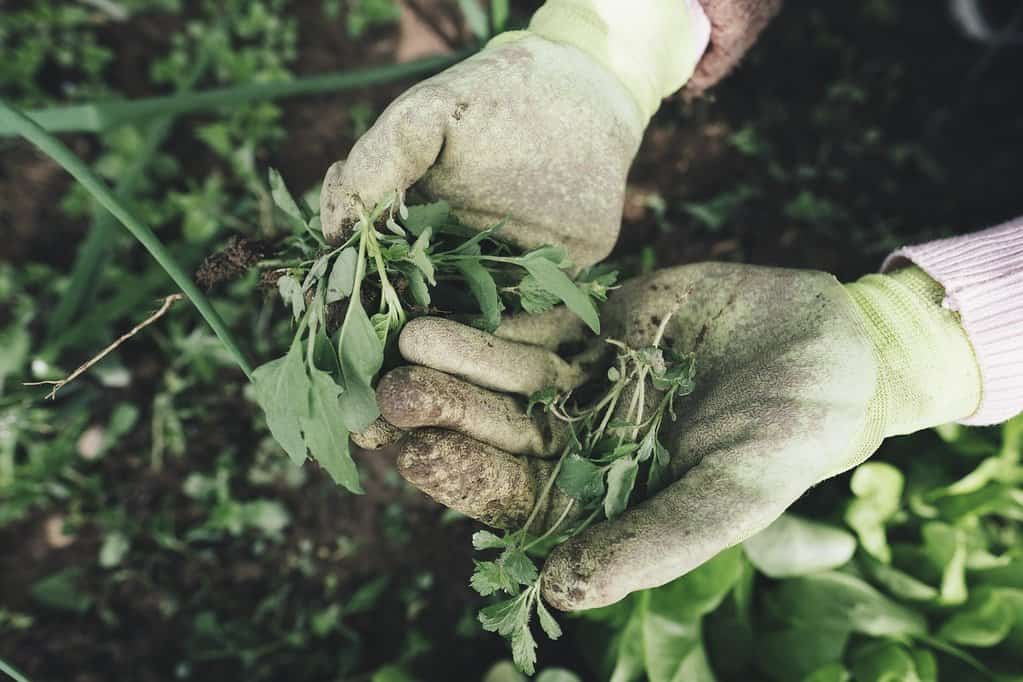Pregnancy is always a sensitive condition. Utmost care is often a priority to ensure the well-being of both the unborn and the mother. Striking a balance between the benefits of engaging in activities and the associated risks is always difficult. While gardening offers exercise and lifts spirits of these mothers it comes with its own risks and myths.
 How can a pregnant mother partake in gardening activities without putting herself or the newborn in harm’s way?
How can a pregnant mother partake in gardening activities without putting herself or the newborn in harm’s way?
Well. We are going to answer this by addressing some of the most popular questions or myths new parents who love gardening have to deal with.
Can I do landscaping, safe lawn mowing or gardening when pregnant? Yes, you can. As long as you use the right protective gear especially when handling chemicals or freshly fertilized soil.
Is Soil Dangerous When Pregnant?
Garden soils present a risk of parasitic infection to the mother. This is easily transmitted when working with soil without wearing protective gloves. Touching soil presents an opportunity for parasites to enter your body especially if you have cut or fractured skin. For extra usefulness, consider using gardening gloves with claws that double up as mini rakes when working the soil.
A simple process like pulling weeds when pregnant should also be handled with care. Soils may also have chemical pesticides and fertilizers that make them risky especially when ingested. You can work with the soil but when wearing protective clothing or opt to use tools instead of your bare hands.
Can You Get Toxoplasmosis from Gardening?
Certain gardening activities demand contact with soil. There is a high risk of soil-acquired Toxoplasmosis when working soil without protection. Toxoplasmosis is not only limited to cat litter boxes but also soil contaminated with the parasite. What makes the toxoplasmosis parasite dangerous is the lack of symptoms for the mother, yet, affecting the foetus. Some of the risks to the foetus include neurological impairment and retardation.
But you can still manage all these by wearing protective clothing, shoes, socks, and gloves. It is also important to wash your hands thoroughly after a session in the garden. These measures create a physical buffer between your body and soil infested with the parasite.

Can I Fertilize My Lawn While Pregnant?
Landscaping your lawn while pregnant is an absolutely good idea. Fertilizing it, on the other hand, has many associated risks. Fertilizers both organic (compost) and inorganic contain chemicals that when ingested, inhaled or come into contact with the skin can result in medical complications. A wiser option is letting somebody else do it for you.
Check this too: How long does it take to make compost
In case you decide to do it yourself, protecting yourself from exposure to fertilizer chemicals during pregnancy is a priority. Wear protective gloves to minimize skin contact with the fertilizer. When dealing with inorganic fertilizers it is important to wear a dust mask to prevent you from inhaling the harmful chemicals. Protective glasses come in handy when you want to prevent your eyes from coming into contact with the fertilizers.
Flowers to Avoid When Pregnant
Despite being a source of aesthetic beauty in the home, certain flowers may cause problems to expectant mothers. Certain floral scents can have severe effects on foetal development and cause miscarriage. Strong floral scents have been linked to headaches, nausea, vomiting and fever. Pollen can also contribute to strong allergic reactions.
Women in their early stages of pregnancy are advised to keep off strong floral scents like jasmine, oleander and poinsettia flowers. Indoor plants may also be a source of concern, considering their uptake of oxygen at night and giving off carbon dioxide reduces the oxygen concentration in the room. It is advisable to have alternative flowers like aloe that don’t have strong scents and release a pure fragrance or wearing a face mask for allergy when in the garden.
